From Relief Efforts to Regional Collaboration and Congress Insights
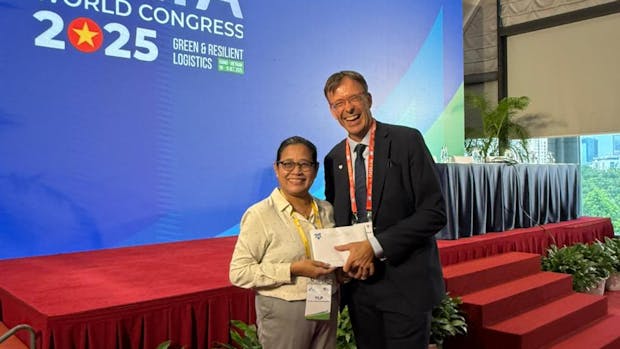
Highlights from the 2025 FIATA World Congress!

Stay tuned for everything you missed at the 2025 FIATA World Congress!
Hosted in Hanoi, Vietnam, this year’s Congress brought together freight forwarders, policymakers, and industry experts from across the globe to explore the theme of Green & Resilient Logistics. The event offered a rich programme panel discussions and networking opportunities, reflecting the energy and innovation of the global freight forwarding community.
Key discussions centred on digital transformation, sustainability, and the evolving role of freight forwarders in global supply chains. Participants also exchanged best practices on trade facilitation, multimodal transport, and skills development to strengthen the industry's competitiveness and resilience.
FIATA extends its appreciation to the Vietnam Logistics Business Association (VLA) for their outstanding partnership and warm hospitality, and to all participants who made this Congress a resounding success. Stay tuned as we bring you a closer look at the main highlights, outcomes, and memorable moments from Hanoi.
Humanitarian Response: MIFFA Receives FIATA Earthquake Relief Contribution
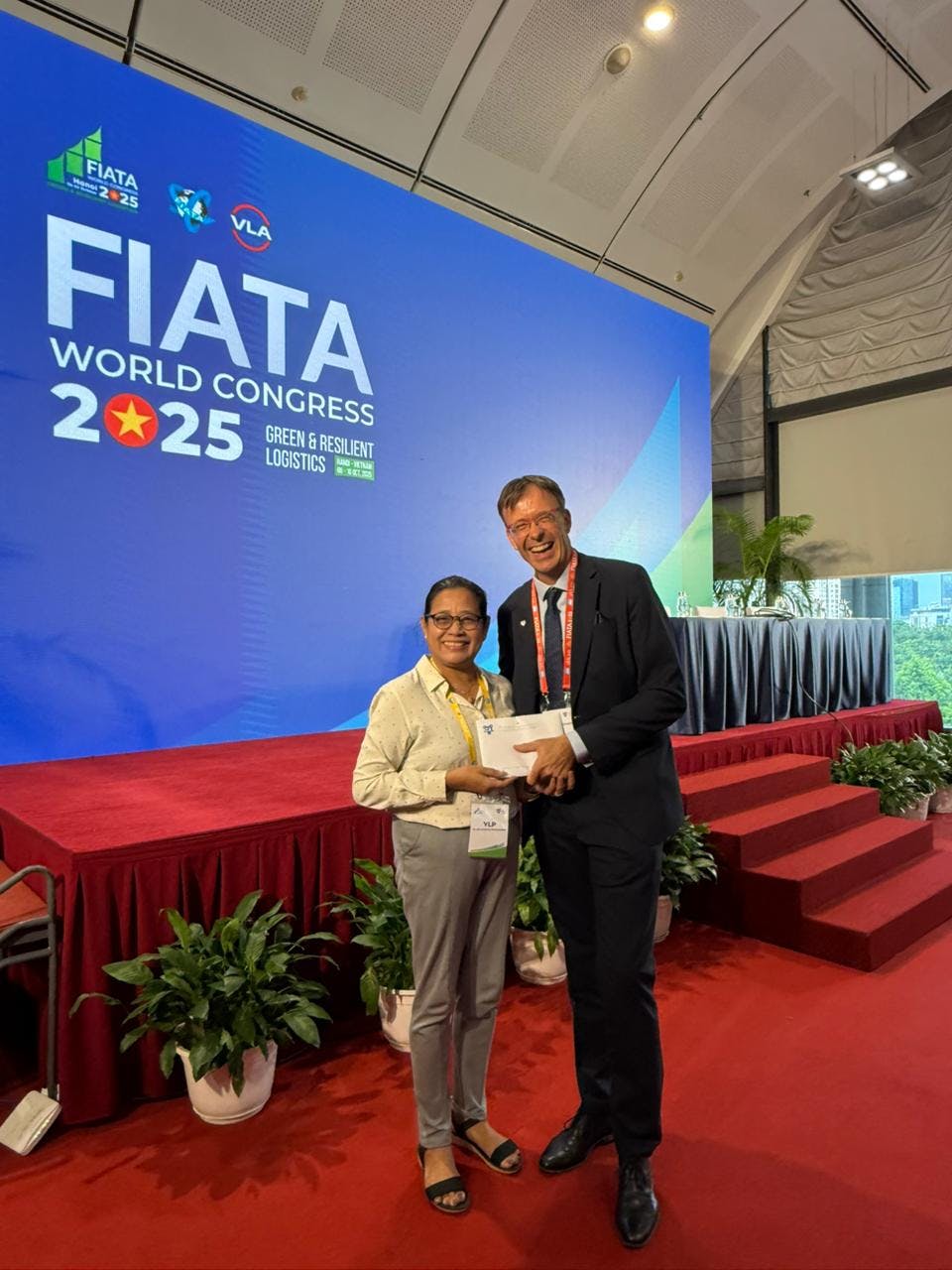
MIFFA representative, Ms Hla Hla Yee, accepting the earthquake relief funds from the FIATA Director General, Dr Stéphane Graber.
FIATA is pleased to share that the Myanmar International Freight Forwarders Association (MIFFA), a FIATA Association Member, has now received in person the earthquake relief fund raised by the FIATA community earlier this year.
Following the devastating earthquakes that struck Myanmar, FIATA launched a relief initiative to support MIFFA’s members and their communities affected by the disaster. Through the collective generosity of FIATA Members and partners worldwide, a total of USD 2,980 and CHF 320 was raised to assist with recovery efforts.
FIATA expresses its sincere gratitude to all contributors who came together in solidarity to support MIFFA during this challenging time. This initiative reflects the strength of the FIATA family and its shared commitment to mutual support and care within the global freight forwarding community.
FIATA Participates in 4th ASA WORLD Leadership Forum
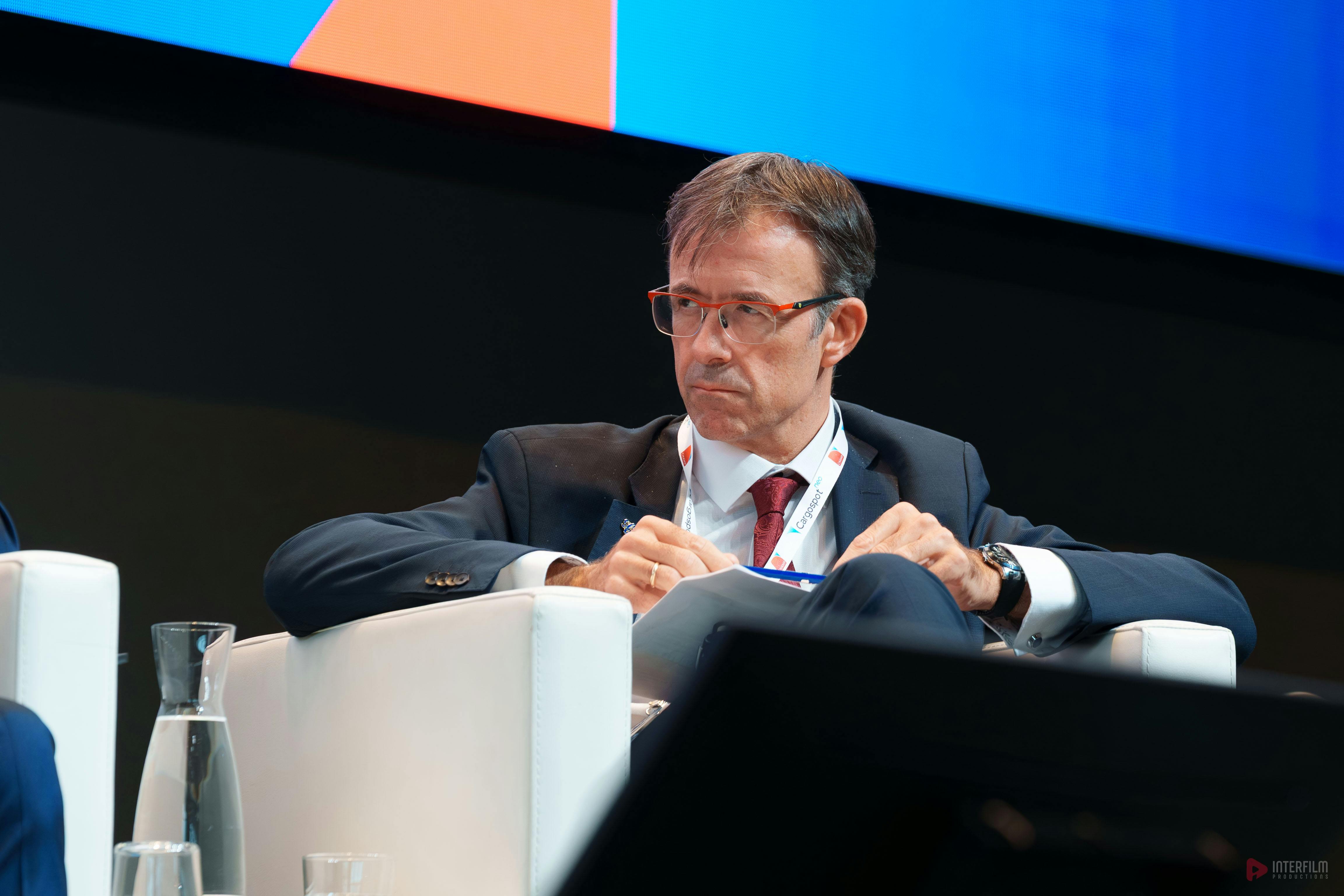
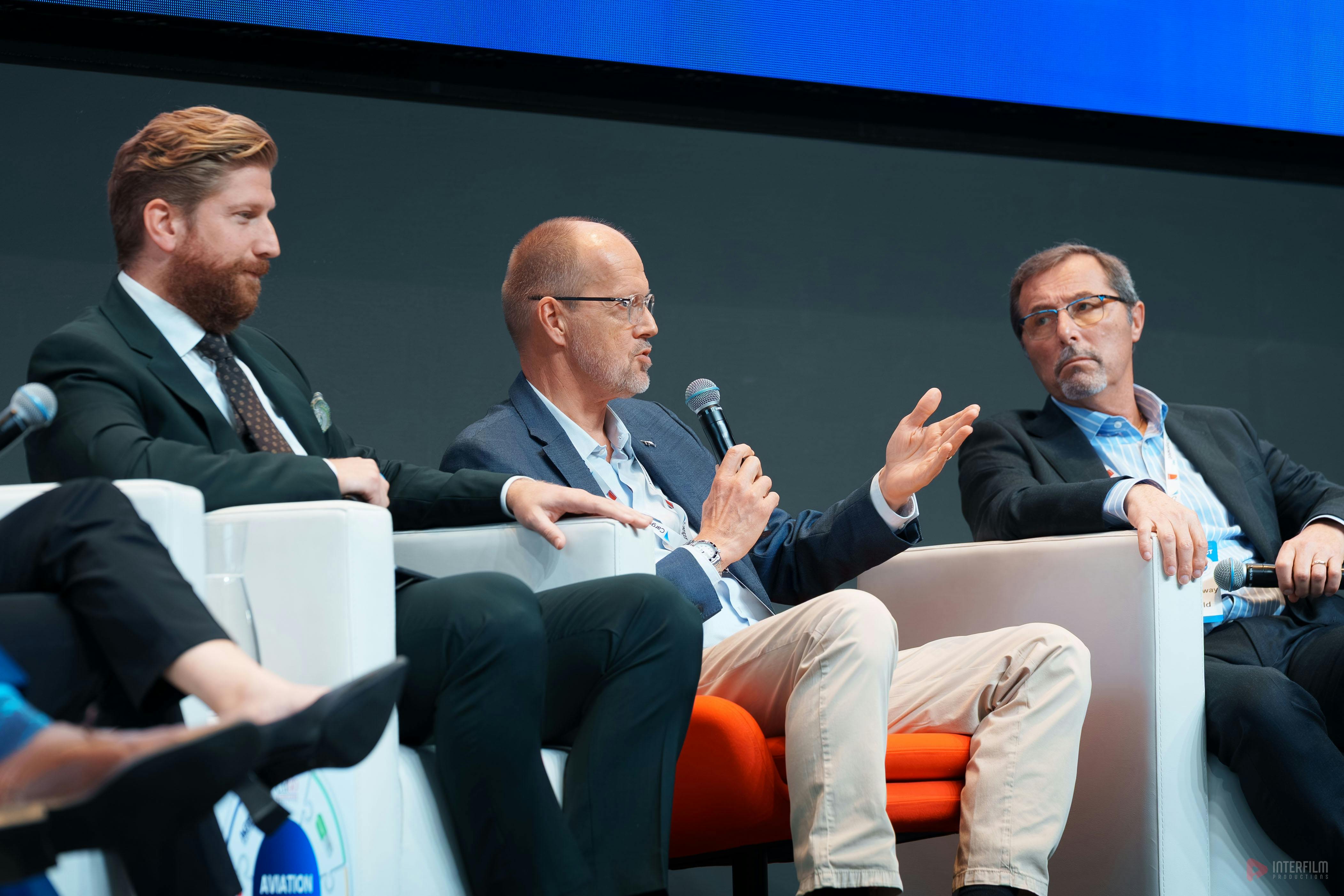
From 15 October 2025, FIATA took part in the 4th ASA WORLD Leadership Forum, a landmark event that brought together the global ground handling and air cargo community for three days of strategic dialogue, innovation, and collaboration. The Forum hosted six industry-defining events:
- Air Cargo Handling & Logistics (ACHL) Conference
- Airfreight Pharma
- ASA WORLD Leadership Forum
- GES & Ramp-Ops
- ULD Care
FIATA’s engagement was multifaceted. Markus Muecke, FIATA’s representative to the ULD Care Advisory Group, participated in the opening panel of the ULD Care Conference. Moderated by Glyn Hughes (TIACA), the panel featured key industry voices including Airbus, Jürgen Neumann (AG Cargo), Tawanda Nyamatore (HACTL), Joanna Li, Gita Aviation, and Franz Redak.
FIATA Director General, Dr Stéphane Graber, joined an exclusive panel titled “Standardisation for a Safer, More Efficient Industry and Improved Service”. He was joined by Brendan Sullivan (IATA Global Head Cargo), Glyn Hughes (TIACA Director General), Marie Seco-Köppen (Cargo iQ Executive Director), Steve Otterway (ASA World Director of Safety & Standards), and Kester Meijer (KLM Director Operational Integrity, Compliance and Safety).
Dr. Graber highlighted the increasing complexity of today’s logistics environment, marked by frequent supply chain disruptions and the challenge of balancing cargo security with operational efficiency. He emphasised the critical role of freight forwarders, who are uniquely positioned to access high-quality original data and maintain a comprehensive end-to-end view of the transport process.
FIATA advocated for meaningful collaboration across the industry to develop smarter, more connected solutions. By focusing on standardisation, jointly agreed standards, targeted training, and the strategic use of technology, stakeholders can significantly reduce risks. Harmonised handling instructions, in particular, can eliminate ambiguity and ensure consistency across operational touchpoints.
FIATA reaffirmed its commitment to collaborative efforts with IATA to enhance operational processes through the IATA Cargo Handling Manual, as well as ongoing partnerships with Cargo iQ and ULD Care.
What Should be Considered When Developing an Industry Standard?
Developing an industry standard requires careful attention to several core principles. While documentation, repeatability, applicability, and adoption are essential, the most critical element is consensus.
Consensus is achieved through broad agreement among stakeholders, ensuring that the standard reflects diverse input and is accepted across sectors—not just within a specific professional group. This process demands collaboration, joint effort, and alignment among all parties involved.
A standard only becomes truly effective when it is widely adopted. Its success hinges on implementation—many standards are developed, but only a few gain recognition and practical use. Consistency is vital; any variation in interpretation or application can undermine the standard’s effectiveness.
Key Components of a Successful Industry Standard
- Consensus:
- Built through agreement among stakeholders such as industry experts, regulatory bodies, and organisations.
- Ensures broad input and acceptance beyond a single group. - Documentation:
- Must be clearly written, accessible, and maintained by recognized bodies (e.g., ISO, IEC, ANSI).
- Enables consistent reference and application. - Repeatability:
- Designed so that processes or outcomes can be reliably replicated across different contexts. - Applicability:
Relevant to a specific domain (e.g., logistics, IT, healthcare) and addresses real-world challenges. - Adoption & Enforceability:
Some standards are mandatory (e.g., safety regulations), while others are voluntary but widely adopted for operational efficiency or competitive advantage.
(This article was prepared with the help of AI).
FIATA Highlights Sustainability and Collaboration at International Logistics Conference in Sarajevo
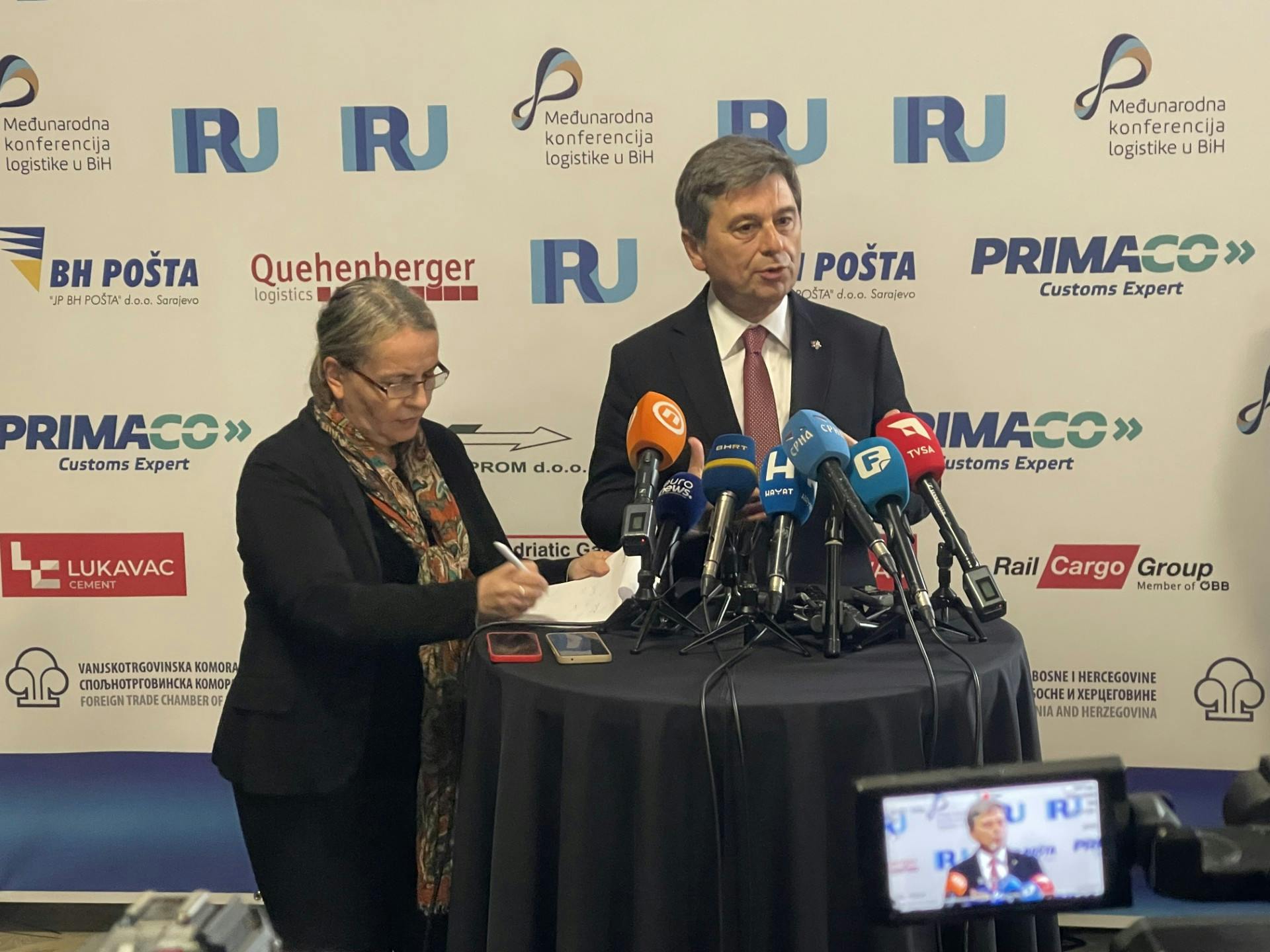
FIATA took part in the Third International Logistics Conference held on 16–17 October 2025 in Sarajevo, Bosnia and Herzegovina—an important event for the Balkan region that brought together industry leaders, policymakers, and academics to discuss the future of transport and logistics.
FIATA Immediate Past President, Mr Turgut Erkeskin, delivered a keynote address during the opening session alongside the President of the International Road Transport Union (IRU), Mr Radu Dinescu. His remarks emphasised the vital role of collaboration and innovation in strengthening logistics connectivity and resilience across Europe and beyond. He noted that "one of the clearest paths forward is digitalisation and green transition. Digitalisation is not about replacing people, but about empowering them. It is about using technology to give better visibility, greater efficiency, and stronger security in supply chains".
On the second day, FIATA Director General, Dr Stéphane Graber, joined a high-level panel on Green and Sustainable Logistics, which explored the intersection of environmental responsibility, digital transformation, and business sustainability. His intervention underlined FIATA’s continued commitment to advancing digital solutions such as the FIATA digital Bill of Lading that support greener and more efficient logistics operations. He noted that "Sustainability is no longer optional in logistics. The cost of being unsustainable is rising, both financially and reputationally, while demand for environmentally responsible services is increasing".
The conference was preceded by a Masterclass and the FIATA Diploma in Freight Forwarding Ceremony, where Dr Graber delivered a keynote on the future of logistics. He highlighted the evolution of skills and competencies required for industry professionals to thrive in the era of Logistics 3.0, underscoring the importance of education and capacity building in shaping the next generation of freight forwarders.
IMO MEPC: Decision on Historic Net-Zero Framework Delayed
Last week, the International Maritime Organisation Maritime Environmental Protection Committee (IMO MEPC) held an extraordinary session on 14-17 October with the intention of finalising what was set to be a landmark decision on the adoption of draft amendments to MARPOL Annex VI, including the IMO Net-Zero Framework. Following significant political opposition from certain IMO Member States, it was decided that the landmark decision would be postponed for one year.
The planned vote on the proposed net zero framework for the decarbonisation of global shipping, which had been provisionally agreed in April, would have set progressively tougher carbon intensity requirements for marine fuels from 2028-2025, setting a clear trajectory for the decarbonisation of global shipping.
The MEPC is now set to reconvene in 12 months' time. In the interim, Member States will continue to work towards consensus on the IMO Net Zero Framework. FIATA will closely monitor developments and will continue to advocate for a fair, transparent, and inclusive green transition that reflects the needs and realities of all actors across the supply chain.
Upcoming FIATA Events

- 2025 FIATA-RAMs Field Meeting, Cartagena, Colombia: 3-5 December
- 2026 FIATA HQ Meeting, Geneva, Switzerland: 30 March-2 April